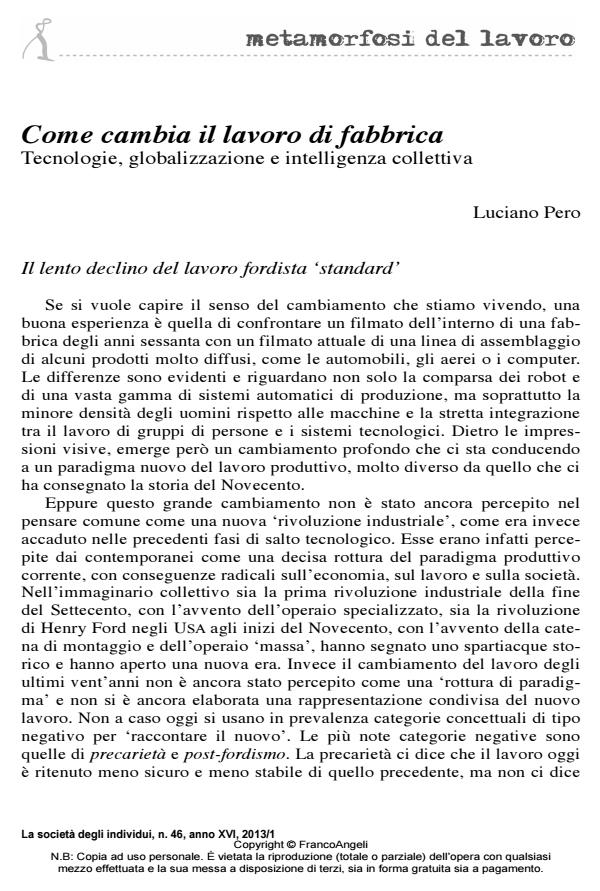Come cambia il lavoro di fabbrica Tecnologie, globalizzazione e intelligenza collettiva
Titolo Rivista SOCIETÀ DEGLI INDIVIDUI (LA)
Autori/Curatori Luciano Pero
Anno di pubblicazione 2013 Fascicolo 2013/46
Lingua Italiano Numero pagine 13 P. 30-42 Dimensione file 861 KB
DOI 10.3280/LAS2013-046003
Il DOI è il codice a barre della proprietà intellettuale: per saperne di più
clicca qui
Qui sotto puoi vedere in anteprima la prima pagina di questo articolo.
Se questo articolo ti interessa, lo puoi acquistare (e scaricare in formato pdf) seguendo le facili indicazioni per acquistare il download credit. Acquista Download Credits per scaricare questo Articolo in formato PDF

FrancoAngeli è membro della Publishers International Linking Association, Inc (PILA), associazione indipendente e non profit per facilitare (attraverso i servizi tecnologici implementati da CrossRef.org) l’accesso degli studiosi ai contenuti digitali nelle pubblicazioni professionali e scientifiche.
Work has deeply changed over the past decades, still the change has not yet been perceived by the collective imagination as a new ‘industrial revolution’, as happened in the assembly line by Ford. To find what’s new, the idea is to focus on the operative contents of work and on the contexts in which people are working, rather than on the conditions, such as wages, working hours and continuity of employment. The analysis of the new contents shows a rapid growth of complexity to be managed by workers: either technological, due to the need to know and control at the same time various technologies, or organizational and relational, linked to the emergence of global networks that require relational capabilities, and finally cultural, due to the fact that most workers have to deal with the cultures of other countries and other companies. A conceptual framework for the new paradigm of work is still lacking, but it certainly has at its center: the collective intelligence, the plurality of knowledge, the ability to deal with other cultures, and the teamwork.
Luciano Pero, Come cambia il lavoro di fabbrica Tecnologie, globalizzazione e intelligenza collettiva in "SOCIETÀ DEGLI INDIVIDUI (LA)" 46/2013, pp 30-42, DOI: 10.3280/LAS2013-046003